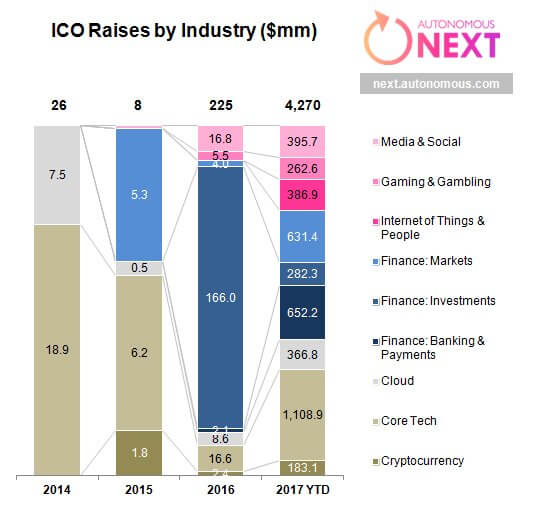 Hong Kong to Launch TV Ads that Warn Against ICOs and Cryptocurrency Investments
Hong Kong to Launch TV Ads that Warn Against ICOs and Cryptocurrency Investments Hong Kong to Launch TV Ads that Warn Against ICOs and Cryptocurrency Investments

Cover art/illustration via CryptoSlate. Image includes combined content which may include AI-generated content.
Hong Kong is planning to launch a series of television ads that warn viewers about the dangers and risks associated with buying into ICOs and cryptocurrencies.

These days it’s unsurprising that local governments try to warn their citizens about the risks of investing in cryptocurrencies. Some governments across the world have issued written warnings to their citizens which urge caution and vigilance, while others have gone as far as to denounce the industry as a series of Ponzi schemes.
While the motivation behind these warnings is questionable at times, the fact of an ever-increasing amount of warnings is undisputable.
Unsurprisingly, the Hong Kong government has recently upped the ante with their latest intended campaign that will consist out of series of television advertisements that is designed to warn viewers about the various risks and instability associated with investing in cryptocurrencies and initial coin offerings.
Today, the Securities and Futures Commission (SFC) subsidiary, the Investor Education Centre (IEC), together with the Financial Services and Treasury Bureau (FSTB) announced their latest campaign aimed at the general public that seeks to raise awareness among would-be investors about the risks and issues associated with the cryptocurrency and ICO industry. The campaign will extend to include both print media as well as television advertisements.
$4 Billion Raised from ICOs in 2017
While the measures seem drastic, the motivation behind it is unsurprising. In September 2017, the SFC made their concerned stance known regarding the ICO boom that the industry experienced last year. Over the course of 2017, ICOs collectively raised nearly $4 billion in startup capital.
This staggering amount becomes perhaps even more noteworthy considering that all these investments are unregulated. In addition, several regulating bodies across the world raised questions regarding certain tokens issued via ICOs, as it could potentially breach securities legislation.
In addition to issues of policies and regulation is the issue of fraud. According to a report published by the firm, Ernst & Young, 10% of the total funds generated by ICOs were either lost or stolen. The ICO industry has given rise to several scams as well.

The recently announced Telegram ICO, for example, has seen the establishment of dozens of fraudulent websites aimed at misleading potential investors.
Scams and fraud are not exclusive to ICOs, however, over the last weekend, prominent Japanese cryptocurrency exchange platforms lost more than $400 million worth of NEM, due to not implementing sufficient security measures.
Previously the IEC chairman, Dr. Kelvin Wong, stated that he believes that the cryptocurrency industry presents the investor with certain high risks, which makes it an unsuitable option for certain investors.
In addition, Joseph Chan, the undersecretary for the Financial Services as well as the Treasury stated that with all the hype surrounding cryptocurrencies, ICOs, and especially Bitcoin, many investors blindly buy into the hype, without fully understanding the risks involved in the industry.
Currently, there is no preview available of the intended advertisements; however, the campaign will start launching notices this week in digital and print media, as well as the Hong Kong MTR station. Several websites will also carry the notices.
The advertisements for television will be launched in March 2018 and will be accompanied by social media videos and radio advertisements.

























































